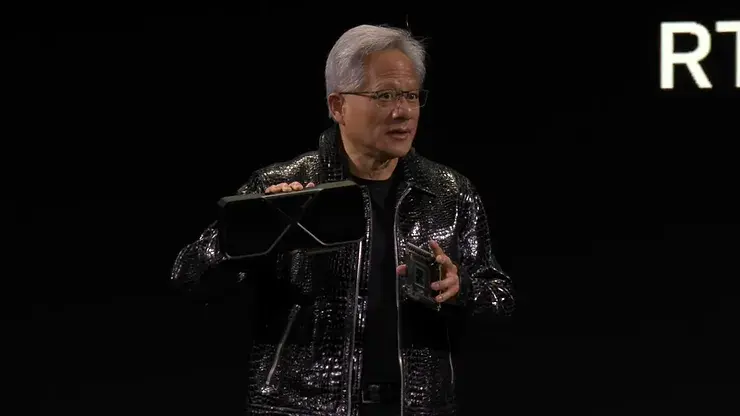Nvidia Unveils Cutting-Edge Technology at CES 2025
- tech360.tv

- Jan 8, 2025
- 2 min read
Nvidia made waves at the CES 2025 tech conference in Las Vegas by revealing a host of innovative products aimed at revolutionising various industries. CEO Jensen Huang showcased the company's latest advancements, including artificial intelligence for training robots and cars, high-performance gaming chips, and even their debut desktop computer.

Huang highlighted Nvidia's strategy of bringing the powerful technology used in their data center AI chips to consumer PCs and laptops. One of the standout introductions was the Cosmos foundation models, designed to create photo-realistic videos for training robots and self-driving cars at a fraction of the cost of traditional methods.
These "synthetic" training data models enable robots and cars to better understand the physical world, akin to how large language models have enhanced chatbot interactions. By providing a text description, users can generate videos simulating real-world scenarios, offering a cost-effective alternative to current data collection practices.
The Cosmos models will be accessible through an open license, similar to Meta Platforms' widely-used Llama 3 language models. Huang expressed optimism about the impact of Cosmos, stating, "We really hope (Cosmos) will do for the world of robotics and industrial AI what Llama 3 has done for enterprise AI."
Analyst Vivek Arya from Bank of America raised questions about the potential impact of Nvidia's robotics initiatives on sales, emphasising the need for reliability, affordability, and widespread adoption to create viable business models in the field.
In addition to the groundbreaking robot training tech, Nvidia unveiled new gaming chips under the RTX 50 series, incorporating the 'Blackwell' AI technology to deliver cinematic graphics in video games. These chips aim to enhance visual realism, particularly in areas like shaders, which add authenticity to objects by simulating imperfections and details like fingerprint smudges.
The gaming chips, priced between $549 and $1,999, are set to launch in January and February, promising an immersive gaming experience with lifelike human faces and enhanced graphics quality. Industry expert Ben Bajarin anticipates a positive impact on Nvidia's sales in the short term due to these new gaming innovations.
Furthermore, Nvidia introduced its first desktop computer, Project DIGITS, tailored for software developers and priced at $3,000. Running on an Nvidia operating system based on Linux, the desktop features cutting-edge chips similar to those used in data centers, developed in collaboration with Taiwan's MediaTek. This compact package allows individual developers to efficiently test AI systems and will be available in March.
In a significant partnership announcement, Nvidia revealed that Toyota Motor will utilise its Orin chips and automotive operating system to enhance advanced driver assistance features in multiple vehicle models. This collaboration underscores Nvidia's commitment to advancing automotive hardware and software, with Huang projecting automotive revenue to reach $5 billion in fiscal 2026.
As CES 2025 unfolds, Nvidia's stock soared to a record high of US$149.43, solidifying its position as the world's second-most valuable listed company, trailing only behind Apple.
Nvidia introduces Cosmos foundation models for robot and car training at CES 2025.
New gaming chips under the RTX 50 series promise enhanced graphics and realism.
Project DIGITS, Nvidia's first desktop computer, targets software developers.
Source: REUTERS


